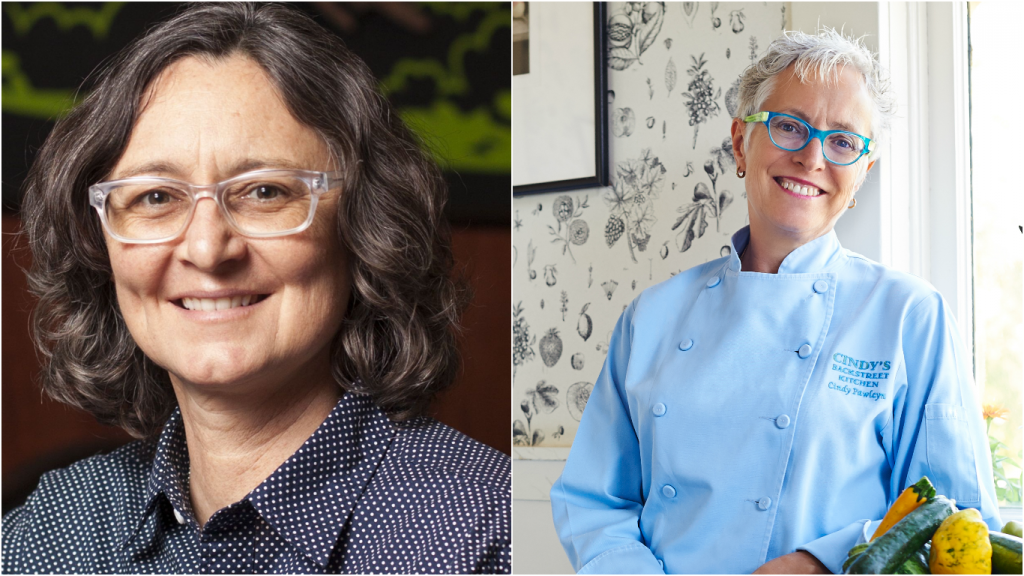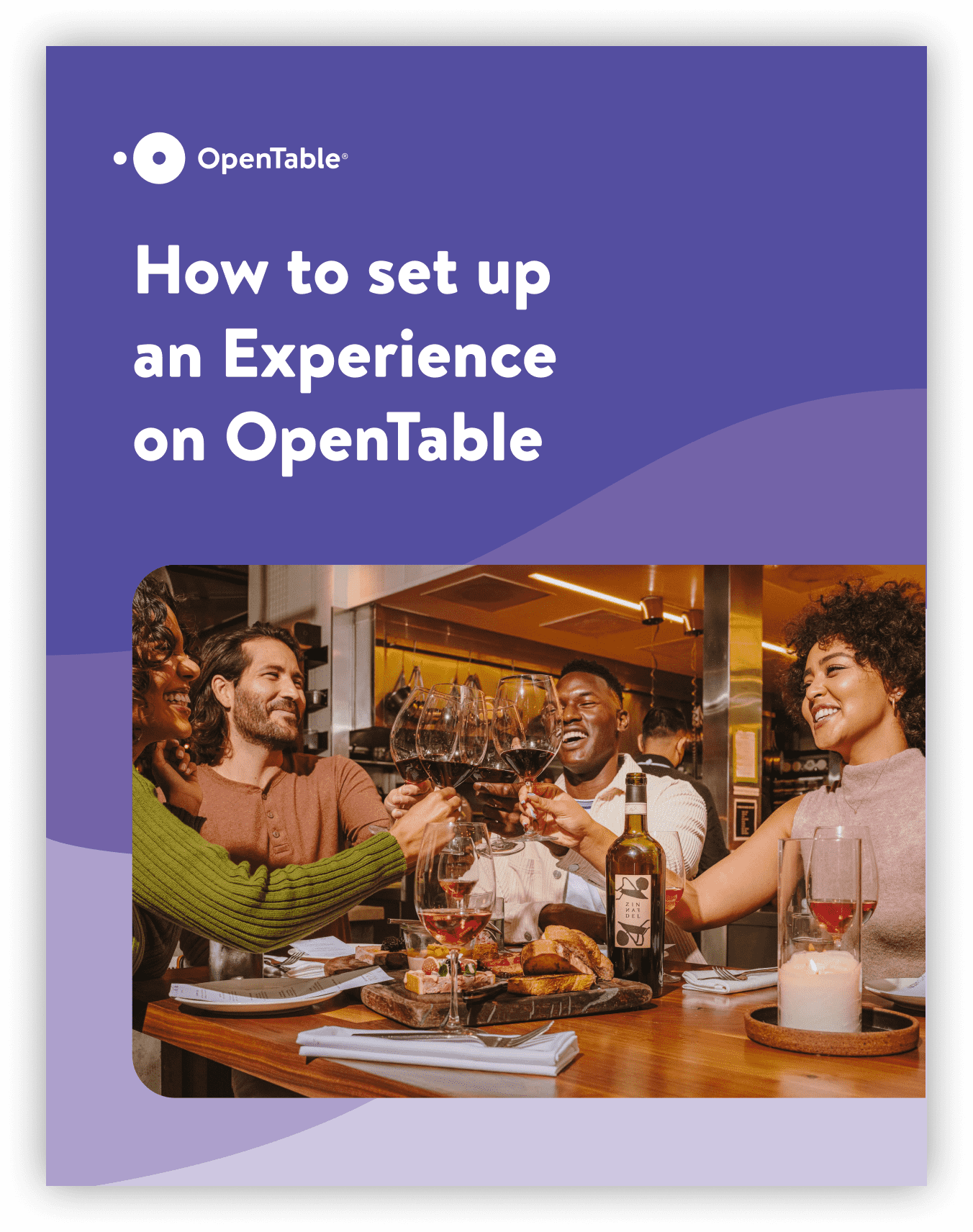It’s tougher than ever to find great talent for your team. So when you’ve hired someone who’s a perfect fit, it’s definitely something to celebrate. It’s also the right time to start thinking about how you’ll retain them and help them grow. Offering ongoing mentorship is a powerful way to build a diverse, inclusive dream team with staying power.
“There aren’t that many women who stick with the restaurant business long-term,” says Cindy Pawlcyn, chef and owner of Mustards Grill restaurant in California. “The more mentoring they can get, the more helpful it will be for them to be successful and stay with it long-term.” Though mentoring benefits all recipients, it can be even more impactful for anyone from a group that has been historically underrepresented in professional kitchens, such as women and people of color.

Pawlcyn mentors everyone on her team, but she’s also volunteered throughout her career to provide valuable mentoring for young people through restaurant industry programs, such as the James Beard Foundation’s Women in Culinary Leadership program. We talked to her about her success and how relationships with veterans can help people earlier in their careers thrive in the hospitality industry.
Here are five ways mentorship can help:
1. Create a nurturing, supportive kitchen culture
Pawlcyn knew she wanted to be a chef when she was as young as 13. She took cooking classes, catered, attended trade school at night throughout high school, and eventually graduated college with a hotel and restaurant management degree. When she was 28 she opened her own restaurant, Mustards, in Napa. But it was harder than it should have been.
“Everybody told me I couldn’t do it because I was a woman,” she says. ”Some wouldn’t believe it now, what happened in those days.” Thankfully, the last several years have brought about a realization that kitchens must be held to high standards of respect, professionalism, and equity.
When Pawlcyn came up in the restaurant industry, things were different. She endured name-calling and other discriminatory behavior, but she remained determined to succeed. When she applied to the Culinary Institute of America, she was told they had filled their quota of women for the next three years and advised her to reapply after that. Today, Pawlcyn says, the door is open wider for women, but she’s still eager to see more people of all kinds finding success in this business. Mentorship is key to making that a reality.
“I think it’s good for our restaurant community if everybody could have someone that they’re bringing up. When you start being more in a teaching and nurturing and developing mindset to this one person, it spreads to all the rest of them.” It contributes to a positive, nurturing culture people want to work and grow in.
2. Reward people who work hard and want to learn
When we asked Pawlcyn how she managed to achieve success in the environment of those early days, she describes putting her head down, working hard, and learning as much as she possibly could. It meant becoming familiar with new ingredients and learning to execute the same dishes and techniques perfectly every time, for starters.
Pawlcyn advises new cooks not to leave a job before they’ve learned everything they can from a given restaurant. “People come in with a pre-determined, ‘I’m going to work here six months or a year and a half,’ but it doesn’t really matter how long it is. It matters how much you get out of that experience. They’ll be more successful in the long run.” When you reward people for their loyalty with opportunities for learning and professional growth, it creates an upward spiral.
3. Offer real-life training for a broad range of skills
Mentorship goes beyond helping someone learn one specific job. For example, Pawlcyn looks forward to teaching new employees how to grow food for a restaurant in Mustards’ garden. They learn how to plant and harvest the fruits and vegetables they’ll cook with. She also teaches mentees business skills, like how to order supplies for the restaurant and plan ahead.
Helping staff members get a varied set of experiences is a central part of her approach. Instead of being trained for a single narrow job description, employees work all stations in the front and back of the house, learning from all of the managers. They even have the opportunity to build their wine experience by working with local wineries.
“I think you have to take the time out of your day to put somebody under your wing, versus just having them work a station,” says Pawlcyn. “You have to teach them how your mind thinks and how you make a decision. You have to say how you’re going to do this and why you’re going to do it that way.”
She sees younger team members who come on board and don’t understand what the restaurant business really is—they just want to be a TV chef. They don’t have management skills or know how to make the business profitable or cost recipes. “You don’t learn that in school, you learn that on the job and facing real day-to-day experiences.” It’s another important thing she tries to teach.
4. Make yourself a better, stronger leader
Young chefs aren’t the only ones who benefit from a mentoring relationship—there are massive rewards for the mentors, too. Once you’re explaining your thought processes and nurturing your team, you begin to re-examine the way you do things, which is always healthy for the team and the business.
“When they come in and go, why do we do it this way? You’ve got to figure out why we do it this way,” says Pawlcyn. “Maybe there is a better way.”
5. Give people the knowledge and confidence to achieve their dreams
Pawlcyn has benefitted from the support of mentors throughout her career. Having somebody to call on with difficult questions and problems can make all the difference.
Working with mentors like Rich Melman and Julia Child, Pawlcyn built the skill set and confidence she needed to succeed. Child taught her to stand her ground, to cook good food, and to use good ingredients. Melman advised her every time she opened a restaurant; she would call him with questions or challenges (and still does). “That’s a true mentor,” she says. “You can say, ‘What do I do? What do you think?’”
She learned to trust herself, even when others assured her she wouldn’t succeed. “That’s important, to be able to have confidence in yourself and go out on your own,” she says, remembering making the decision to walk away from her business partnership of 22 years. “They would mess with me and say, ‘On your own you’re not going to be very good because you don’t know how to do this and that.’ In the end I knew how to do all that stuff.” Today, she passes these lessons on to her own mentees.



